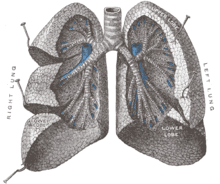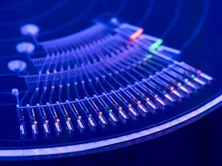New Microchip Capable of Diagnosing Infections in Minutes Developed by U of T
The conventional method of diagnosing infectious bacterial diseases involve collection of blood and other clinical samples and culturing it, and making observations after the required incubation period for any microbial growth. It may take days to get the results. Apart from that, it takes some more time to find the effective antibiotics against it, or to check whether the pathogen is antibiotic resistant. By that time, the infection may worsen or even turn lethal to the patient. The researchers at University of Toronto have come up with a solution for this problem in the form of a microchip.
The researchers from University of Toronto’s Electrical and Computer Engineering and the Institute of Biomaterials and Biomedical Engineering have developed an electronic chip for analyzing blood and other clinical samples for infectious bacteria at record speeds. The solution based circuits on the passive chips makes highly multiplexed electrochemical sensing feasible, which is essential for interrogating samples for various biomarkers.
The solution based circuits on these chips switch information carrying signal readout channels and eliminates all measurable cross talk from adjacent biomolecule specific microsensors. This ensures efficient analysis and classification of samples and pathogens at clinically relevant concentrations respectively. This new technology empowers these chips to identify pathogens within minutes, and investigate the sample for different bacteria and drug resistance markers in parallel, for rapid and specific identification of infectious agents.
The new highly sensitive enzyme free electrochemical detection technology paves way for further advances in near patient clinical diagnostics. The highly multiplexed detectors makes simultaneous testing of multiple bacteria and viruses that produce similar clinical symptoms possible and offers a simple, cost effective diagnostic solution. A detailed report about the technology is published in the Nature Communications journal.
Source: University of Toronto




